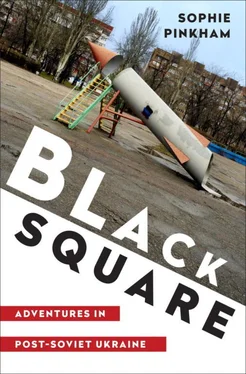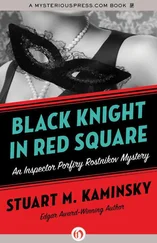We were put to work making origami tulips to be sent to Moscow and included in an art exhibit meant to raise awareness about HIV. It took us several hours to master the technique, but from then on we made origami tulips more or less full time. For this work, I calculated that we were paid, through our stipends, ten times the salary of the outreach workers, some of whom had to quit because they didn’t make enough to live on. This was especially troubling since the outreach workers and their supervisor, a keenly intelligent, open-minded young woman from Yakutsk, were the only people at the Red Cross who seemed to be doing any meaningful work related to HIV.
We visited a college where, using sign language, we tried to teach students how to make tulips. I could explain how to fold tulips, but I couldn’t muster enough Russian to explain to the students why, exactly, we were doing it. Then again, I couldn’t muster enough English to explain it to myself. Most of the students thought the tulips were an arts and crafts project and that the red AIDS ribbons we gave them were a reward for their artistic accomplishment. They were enthusiastic until we offered them pamphlets on HIV, at which point they recoiled and left without saying goodbye. (We didn’t give out condoms—the Red Cross said it couldn’t afford it.)
Many of the students asked why four American girls, dyevushki, had come all the way to Irkutsk to make paper flowers. In the Soviet Union volunteers had been forced, or they were gung-ho Communists; in cutthroat capitalist Russia, volunteers were suckers. If a Russian could choose between Irkutsk and New York, she’d choose New York every time. I remembered my high school friend Ilya’s Russian immigrant father, who had said, upon hearing about my trip, “Why the hell is she going there? Irkutsk is the asshole of the world.”
Tanya, our friendly interpreter, was by now busy with her schoolwork and gone half the time, leaving us to rely on my few stock phrases and on sign language as we were dragged from one school to another, an ostentatious burden. The people in the Red Cross office no longer bothered to acknowledge us, referring to us only as dyevushki , sharing our bewilderment as to the purpose of our visit.
At last, in our frustration (we were supposed to be saving somebody!), we asked Vika why we had been invited to Irkutsk. She admitted that she didn’t know. It had become clear, however, that the Red Cross had received some money in exchange for hosting us.
“Think of it as a paid vacation!” said Vika, laughing in the way that Russians laugh when things are horrible but they refuse to admit it.
I began to have unkind thoughts about some of our hosts. On the street we passed a stoned man whose face was being burned by the cigarette hanging out of his mouth, and Vika giggled. I saw Larisa, a Red Cross staff member, berating a homeless woman who had come to take some of the free clothes in the lobby. Larisa shoved the woman, waving her fist.
“You’re a woman, not an animal! Why don’t you take a bath? You stink! Get out!” she yelled.
The next day Vika called and told us not to come in, because there was nothing to do. This was a turning point. Every morning for the next week we rose with our alarm clocks, ate our porridge, and got dressed for work, and every morning Vika called and told us not to come in. I read Bulgakov’s The Master and Margarita and Turgenev’s Fathers and Sons , discovering that Russian literature has a particularly powerful effect when read in a state of misery, isolation, and severe cold. Although we had begun to hate one another, my roommates and I tested all the beauty tips in a copy of Allure that someone had brought. We straightened our hair, curled our eyelashes, watched Russian music videos, and waited for dubbed American movies to come on so we could lip-read.
On World AIDS Day, December 1, our hosts made an exception and let us come to work. In the morning we folded pamphlets and cut stickers. Then we were herded to the movie theater. The film being shown was Christiane F. , from 1981. Christiane is a bored Berlin fourteen-year-old who, for reasons that are left unexplained, goes to clubs where they play only David Bowie, becomes a heroin addict, projectile-vomits daily, sells sex in a subway station, is too high to blow out the candles on her birthday cake, and falls in love with a fellow junkie, whom she brings a piece of cake before discovering that he is prostituting himself to men. As might be guessed from the release date, Christiane F. doesn’t mention AIDS. The high school students in the theater shrieked with laughter throughout the film. Television cameras shone bright lights in our eyes as they filmed the audience reactions; a little boy, about five, wandered up and down the aisle, looking at his shoes, trying not to notice the people shooting up on the screen above him.
TAKING TO HEART Vika’s suggestion about the paid vacation, we decided to be diligent tourists. Mustering the last of our optimism, we followed the blandly cheerful advice of the Lonely Planet guide and found ourselves walking along the riverbank, which was populated mainly by stray dogs—for some reason, mostly Corgis. This was where our oldest roommate liked to go jogging, though she was often chased by Corgis, which are herding dogs, and also, sometimes, by men.
The buildings outside the center of town were faded and flaking, their windows broken or boarded over, and as we continued walking, the wooden houses became tin-roofed shacks. Crosswalks and sidewalks grew rare, the streets were strewn with trash, and we had to dash across small highways, weaving between cars and praying we didn’t trip. (We now understood why billboards all over town encouraged drivers not to kill pedestrians.) Soviet statues were flanked by raving old women and children with sores on their faces, and the hurried Angara River was lined with the blackened skeletons of industry.
Walking fast, without a word, we reached a church guarded by a gauntlet of women and children who scuttled up to us, asking for money. The church was big and gaudy, striped and gilded, its interior plastered with incense-darkened icons. A voice behind a screen was speaking in Church Slavonic, fast, flat, and hypnotic, a language invented for the sublime. Old women in voluminous shawls crossed themselves over and over, radiant with grief. They pressed their lips against the glass cases of the icons, and church attendants wiped the marks away with rags.
We were standing at the center of the church, listening to the service, when a clucking attendant, another elderly lady, dragged us to one side. A group of monks began a procession from the entrance of the church to the altar. As the monks passed, the old women kissed the hems of their robes, half sobbing. We hurried out, ashamed; this was no place for tourists.
When we’d run out of sights in Irkutsk, we made an excursion to nearby Ulan Ude, a small, frozen town populated mainly by indigenous Buryat people. The town’s main attraction was an enormous Lenin head, almost twenty-six feet tall, cast in forty-two tons of dark gray metal, as if the great leader had exploded in space and his head had fallen to earth like a meteor. Too heavy to move, Lenin’s head will probably remain in Ulan Ude forever, after all the people are gone, the wooden houses have crumbled, and the rivers have overflowed their banks.
• • •
TANYA RESURFACED FROM time to time, taking us to clubs where we met her friends from the Linguistic University. Over shots of vodka and grenadine, Lena, Zhenya, and Olya told us that they wanted only to leave Irkutsk. Their voices pitched high with hope, they listed the languages they spoke, asking us if we knew any French, Spanish, or Italian men and, if so, whether they were nice. They told us about their dreams of getting to St. Petersburg or France or Israel or the United States or anywhere, really. After a few more shots they confessed, in subdued tones, that they’d considered trying to marry an American. They didn’t plan to marry without love, they said, but they refused to accept a life in Russia. If they’d been Americans, they would have said something like “I deserve better.” But they were Russian, so they didn’t.
Читать дальше












